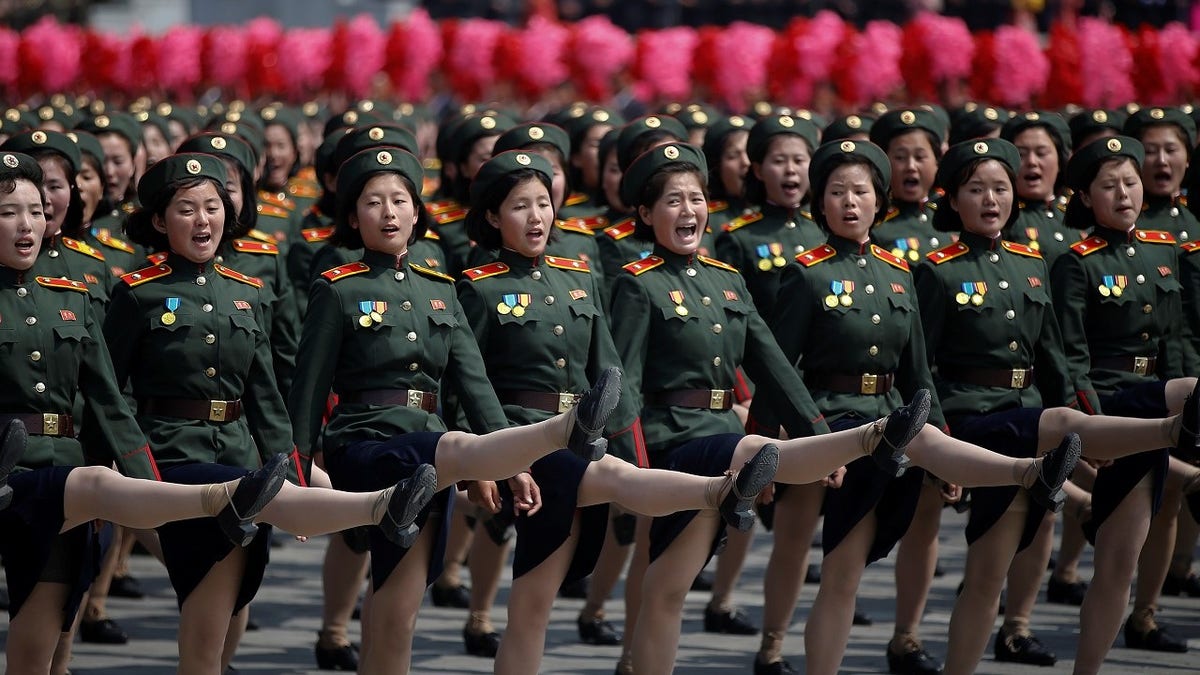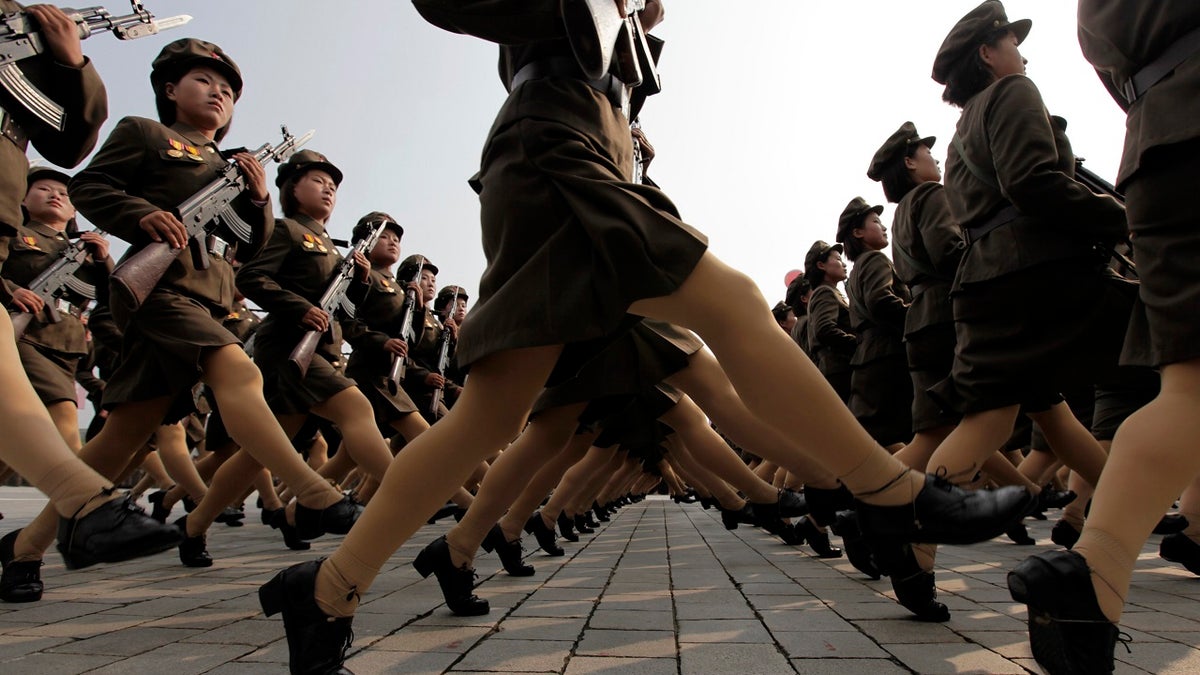
North Korean soldiers march during a military parade marking the 105th anniversary of the country's founding. (AP)
Female North Korean soldiers are often raped, and some are forced to reuse sanitary pads while many stop menstruating altogether because of the tough conditions suffered during their army duty, a North Korean defector who dealt with years of hellish service in the regime’s army revealed Monday.
Lee So Yeon, who defected to South Korea through China, told the BBC about the 10 years she spent in the North Korean army, a period which began when she was 17. She said she served in the army between 1992 and 2001 and was never raped herself, but many of her comrades suffered sexual abuse.
"The company commander would stay in his room at the unit after hours and rape the female soldiers under his command. This would happen over and over without an end,” Lee told the BBC.
Lee, now 41, said she “enjoyed her life in the army,” but the rigorous training schedules and lack of food were hard on women’s bodies.

North Korea's female soldiers are often raped, according to a defector. (Reuters)
"After six months to a year of service, we wouldn't menstruate anymore because of malnutrition and the stressful environment," she told the BBC. "The female soldiers were saying that they are glad that they are not having periods. They were saying that they were glad because the situation is so bad if they were having periods too that would have been worse."
TRUMP REDESIGNATES NORTH KOREA A STATE SPONSOR OF TERROR: WHAT THAT MEANS
Lee said female soldiers were forced to reuse sanitary pads. Juliette Morillot, author of “North Korea in 100 Question,” also told the BBC women still used “traditional white cotton pads” that had to be washed when men weren’t around. Morillot, who visited North Korea and spoke to female soldiers, said women missed their period for years while in the army.
"One of the girls I spoke with, who was 20, told me she trained so much that she had skipped her periods for two years," Morillot said.
Lee has recalled being engulfed in the odor from her own sweat because her army bunk was made of rice hull.
"As a woman, one of the toughest things is that we can't shower properly," she said, adding there wasn’t hot water and frogs and snakes ran through the shower hose — which came from a mountain stream.
NORTH KOREAN PRISON CAMPS STOPPED REPORTING DEATHS UNDER KIM JONG UN, EX-PRISONER CLAIMS
Lee voluntarily joined the army in her teens, but under Kim Jong Un’s regime, North Korean women are now required to serve at least seven years in the army, starting at 18 years old, according to the BBC. The mandate, implemented two years ago, is expected to increase the number of women between 18 and 25 in the military. Exceptions are held for “gifted people” who possess special talents, including those who excel in sports and music.
Lee decided to defect in 2008 and made two attempts. She was caught the first time and sent to a prison camp for a year. She successfully escaped the second time by swimming across the Tumen River.
'ENORMOUS NUMBER' OF PARASITES IN NORTH KOREAN DEFECTOR'S BODY, DOCTORS SAY
Life in the world's fourth largest army came under focus after a North Korean soldier defected to South Korea by dashing across the Joint Security Area at the Demilitarized Zone last week. His comrades fired more than 40 rounds at him, striking him at least five times. It’s still unclear why the soldier defected, but doctors treating him in South Korea said they removed dozens of parasites from his body. Some presumed roundworms were as long as 11 inches.
Choi Min-Ho, a professor at Seoul National University College of Medicine, told Reuters the soldier’s condition wasn’t “surprising at all considering the north’s hygiene and parasite problems.”

Doctors in South Korea treat the North Korean soldier who dashed across the JSA at the DMZ. (Reuters)
“Although we do not have solid figures showing health conditions of North Korea, medical experts assume that parasite infection problems and serious health issues have been prevalent in the country,” Choi said.
North Korean farmers reportedly use human feces, called “night soil,” as fertilizer after a decrease in chemical fertilizer production. North Koreans also view it as the “best fertilizer” in the country despite causing parasite and worms problems.
The Associated Press contributed to this report.








































